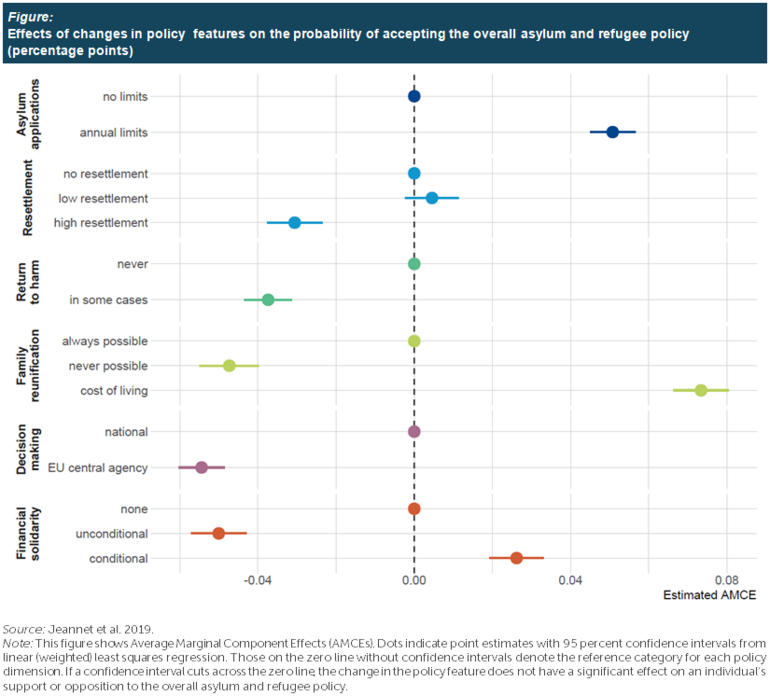News
Public views on asylum and refugee policies similar across European countries

Researchers at the Kiel Institute for the World Economy (IfW Kiel) and the European University Institute (EUI) surveyed 12,000 people in eight EU Member States: Austria, France, Germany, Hungary, Italy, Poland, Spain, and Sweden.
Within the framework of the MEDAM project (Mercator Dialogue on Asylum and Migration), the researchers looked at the structure of asylum and refugee policy preferences across six policy dimensions. They studied the regulation of applications for asylum, resettlement of recognised refugees, and the return of unsuccessful asylum seekers to countries where they could face serious harm. Furthermore, they also addressed family reunification for refugees, national and EU decision-making and financial assistance for non-EU countries hosting refugees. The researchers collected insights on how preferences depend on the design of the asylum and refugee policies, in particular on the use of limits and conditions.

"Our research clearly illustrates that Europeans want to protect asylum seekers and refugees," says Tobias Stöhr, co-author of the study and senior researcher at the Kiel Institute. "But it is important to them that this happens in a controlled manner, that there are limits and conditions. The remarkable similarities in citizens’ attitudes highlight much greater unity across countries than one would expect considering the public debate and the changes in the political landscape in recent years."
The researchers found similar preferences for protection with limits and conditions in all eight countries surveyed, including in Hungary, a country with a government well known for its anti-refugee policy positions.
This type of analysis of asylum and refugee policies is new. There has been plenty of research in recent years on public attitudes to immigration and migrants in general, less on attitudes to asylum seekers and refugees, and near to none on what Europeans think about different dimensions of asylum and refugee policies. This new research can help inform ongoing policy debates on how to reform asylum and refugee policies in Europe and beyond.

